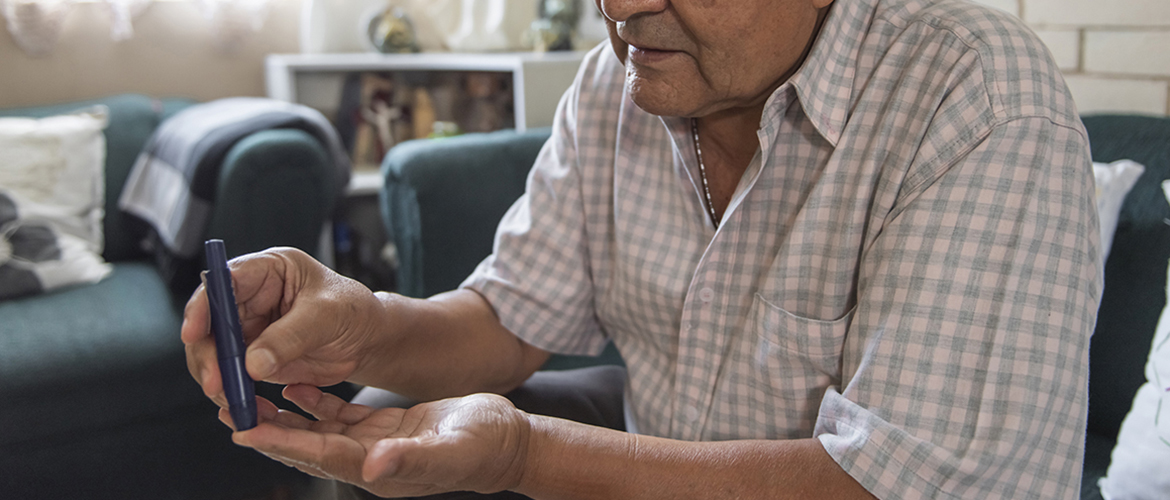In Oklahoma City, Mercy Hospital’s Good Samaritan Clinic is helping uninsured adult patients with diabetes learn how disease management can improve their lives and lead to fewer emergency room visits.
The process starts with basic health and nutrition education for patients diagnosed with diabetes and those at risk for it, says Morgan Rozzell, the clinic’s advanced practice registered nurse. Many patients, mostly Spanish-speaking immigrants, have sought treatment at emergency rooms and urgent care centers — considered their only options for care. Lack of access to preventive care and education has put them at a significant disadvantage.
“We want to help them shift their focus and learn that life can lived more fully when they are feeling better,” says Rozzell. Many patients don’t seek care until they experience diabetic neuropathy, one of the first symptoms of the condition. “They feel like a failure for not managing it.”
Diabetes is a major health care concern across Oklahoma. Almost 400,000 Oklahomans say they have a diabetes diagnosis, and the state has the ninth-highest diabetes rate nationwide, according to the most recent Oklahoma diabetes report.
At Good Samaritan, 40% of patients have diabetes. Many others have risk factors for the condition — obesity, high blood pressure or a strong family history of diabetes.
With support from Blue Cross and Blue Shield of Oklahoma, the nonprofit health center started a monthly nutrition education class for patients diagnosed with diabetes and prediabetes to help them make lifestyle changes and become healthier. The clinic also performs diabetes screenings, medication management and foot exams.
Good Samaritan is among several BCBSOK Blue Impact℠ grant recipients statewide working to address social determinants of health, including nutrition and access to transportation and physical activity.
“Blue Impact grants are part of our ongoing commitment to support nonprofit organizations that focus on the health of Oklahomans,” says Stephania Grober, BCBSOK president. “We are proud to partner with this year’s recipients and are excited to see how their innovative and impactful programs make a significant difference in our community.”
Good Samaritan also relies on state resources and other nonprofits to help patients get free and reduced-cost medical equipment, medications and annual eye exams to manage their conditions. Additionally, its community health workers assist patients in overcoming other barriers such as food insecurity and lack of transportation to keep them on track.
“Their home situation is going to dramatically affect their disease management compliance,” Rozzell says. “We’re trying to teach patients how to get invested in their care.”
Rozzell says these interventions may seem overwhelming to patients who have never had the opportunity to make health a priority.
“We can impact generational change,” Rozzell says. “We’ve got to build rapport and try to help them work through barriers to care.”

